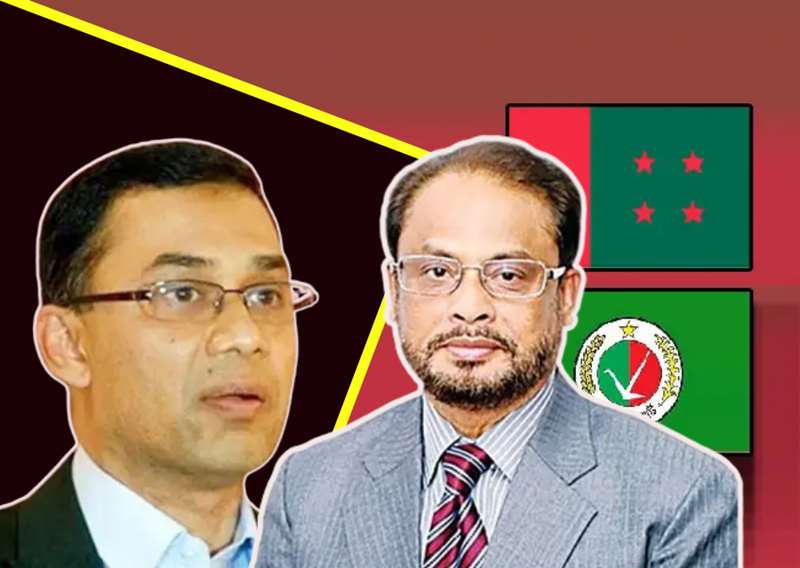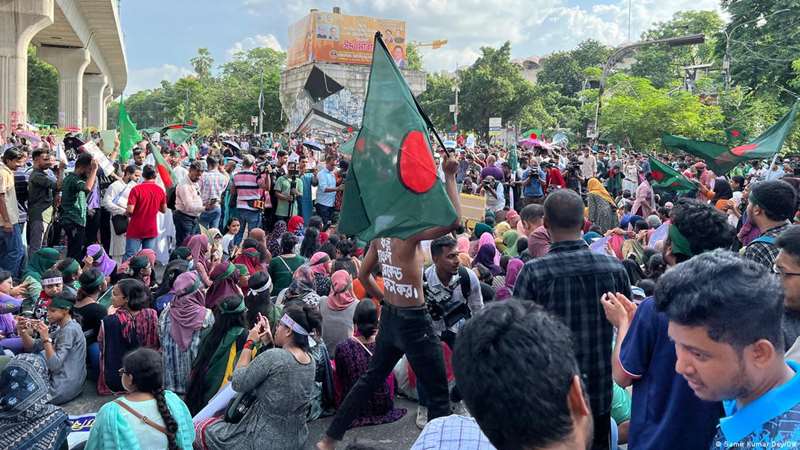Tarique Rahman's strategy ultimately failed

Tarique Rahman and GM Quader
The Jatiya Party is set to withdraw from the election, and members of the 14-party alliance, led by the Awami League, are poised to declare a boycott. Consequently, the Awami League appears to be proceeding with a one-sided election—an alleged conspiracy that fugitive BNP Acting Chairman Tarique Rahman orchestrated from London.
Despite meticulous preparations, BNP's elaborate plan ultimately did not succeed. Jatiya Party has declared its commitment to participating in the election until the end, while members of the 14-party alliance are opting to participate, even if dissatisfied.
In parallel, BNP and its affiliated civil society representatives persist in their efforts to dissuade major political parties from participating in the election. However, these persistent attempts proved to be ineffective.
Reliable sources reveal that the Awami League had prior knowledge that Jatiya Party would eventually withdraw from the election. Prime Minister Sheikh Hasina, the President of the Awami League, informed several senior party leaders of this decision and discussed it with ministers after a cabinet meeting. Despite these notifications, Jatiya Party remained in the election.
Substantial sums of money were reportedly offered to top Jatiya Party leaders to keep them out of the elections. Additionally, there was a proposal that, if Jatiya Party boycotted the elections, BNP would align with them under a caretaker government, with GM Quader being considered for the position of Prime Minister. However, GM Quader did not ultimately agree to BNP's proposal.
Political analysts attribute the failure of BNP's plan to several factors.
Firstly, there was a general lack of trust in BNP, and people were unwilling to take the risk of trusting Tarique Rahman's assurances.
Secondly, India and some friendly countries conveyed to Jatiya Party that such a decision would be detrimental to them.
Thirdly, top Jatiya Party leaders who had benefited from a compromise deemed boycotting the elections a risky move. They believed that, given Jatiya Party's existing organizational weakness, boycotting the elections would render them practically nonexistent. Instead, participating as an opposition party presented an opportunity to gradually build a stronger organization than BNP. This reasoning was deemed sensible.
GM Quader is unlike Jatiya Party's founder chairman, the late Hussain Muhammad Ershad, who wielded considerable authority in the party. Instead, GM Quader must compromise with other leaders of the party. Attempts to subdue GM Quader alone or to align GM Quader alone were unsuccessful. Consequently, BNP's endeavour to keep Jatiya Party away from the elections failed due to the dependence on GM Quader alone.
Despite these setbacks, BNP leaders believe there is still an opportunity ahead. Significant offers were made to partners to dissuade the 14-party alliance from participating in the election. However, Tarique Rahman's strategy ultimately failed. Trust in Tarique Rahman was elusive, and parties did not choose to boycott the election in response to BNP's proposal. This represents another significant setback for BNP politics, removing the final obstacle to the upcoming national parliamentary election. The focus now shifts to whether the government can conduct free, fair, and impartial elections.









.jpg)
পাঠকের মন্তব্য